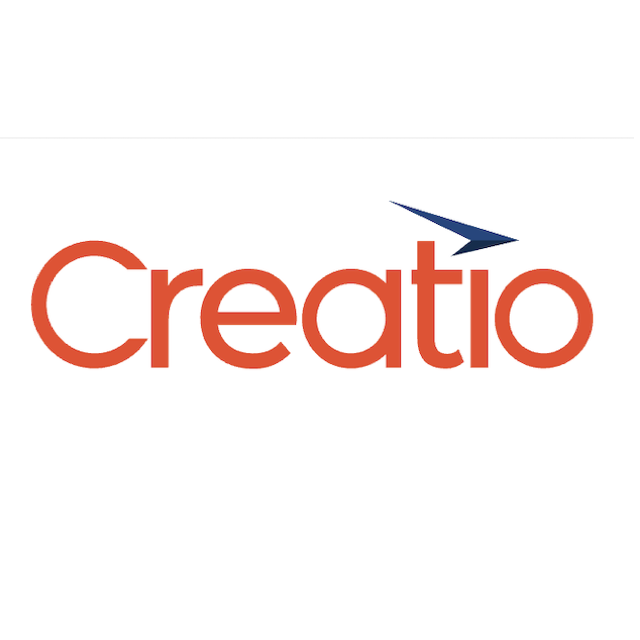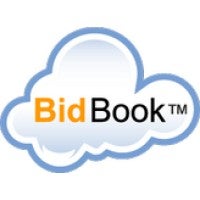Midsize companies are sometimes seen as an awkward category, too large for the discounts available to small businesses, but too small to command the prestige of enterprises. But midsize companies account for a third of private-sector GDP, outperforming other segments in the past by adding millions of jobs. By getting the right mid-market CRM solution, these companies can continue to gain financial resilience, improve organizational capabilities, and increase the pace of product and business innovation.
Table of Contents
- What Is CRM Software for Midsize Companies?
- Top 10 CRM Software for Midsize Companies
- Types of CRM Software
- Features of CRM Software for Midsize Companies
- CRM for Specific Industries
What Is CRM Software for Midsize Companies?
Policy makers and business regulators usually define midsize companies according to the number of employees, between 100 and 999, and their annual revenue, more than $50 million but less then $1 billion. Today’s CRM software for midsize companies addresses the needs of these organizations with a balance of affordability, capabilities, and flexibility. A medium CRM system provides companies a readymade solution they won’t have to build themselves. It includes both core and extendable features, so companies are not stuck with only the basics. And it is within the company’s budget, so they don’t have to spend more than what they need.
Top 10 CRM Software for Midsize Companies
Midsize companies have overcome the obstacles smaller companies face, they are also confronting new challenges like managing a growing workforce, attending to more diverse needs from customers, and needing better tools to understand those customers. The best CRM for midsize companies can provide the application and platform to help the organization achieve that next level of growth in a smooth and organized way.
Pipedrive

Pipedrive is a sales CRM software that helps users visualize their process. It is affordable, easy to set up, and easy to use as compared with leading solutions for enterprise businesses. The activity-based selling approach of the software makes it an ideal CRM solution for SMBs. It has lead and deal management, customizable chatbots and web forms, and intelligent automation that learns from use.
Teams can track calls, emails, and contact history. The software promotes visibility and gives users greater control over their schedule. Other features include reports, mobile apps, and an apps marketplace with hundreds of integrations.
monday sales CRM

monday.com is a flexible platform that enables midsize companies to build the right CRM solution for their needs. It has a flexible drag-and-drop interface and ready-to-use templates, so they can customize the application for their sales pipeline and workflow quickly. Users can create a visual sales pipeline for easy tracking of leads and stages.
With monday sales CRM, businesses can centralize all their contacts, documents, and tasks in a single platform, avoiding the need to switch between systems. The software works across devices — including mobile — helping teams easily interact with customers, schedule activities, and close deals. It is scalable and integrates with many productivity tools.
Creatio

Creatio is a CRM and process automation platform. It offers modular CRM products to give midsize companies more options. The multi-channel marketing application allows users to streamline personalized communication across different channels to boost lead generation and customer retention.
It provides a comprehensive view of the customer, allows customer segmentation, and provides lead management of the whole lifecycle. Other features include end-to-end sales management with sales process automation, opportunity management, forecasting, and analytics. It also has full-cycle service management, omnichannel communication, and contact center case management.
SugarCRM

SugarCRM is an online platform that includes several products for marketing, sales, and customer service. It has predictive lead scoring, multi-channel marketing, and a drag-and-drop builder with preset templates for landing pages, emails, and conversion forms. AI helps users create forecasts, convert leads, and enrich profiles.
SugarCRM provides actionable insights from different sources, and notifies users of updates with real-time alerts. The software also includes omnichannel communication, customer journey mapping, integrations, renewals management, an issue management console, sentiment analysis, self-service portals, and case tracking dashboards.
Zoho Bigin

Zoho Bigin is a CRM software for growing midsize companies. It is pipeline-centric and affordable, providing companies a more powerful tool than simple spreadsheets. Teams can engage prospects faster by deploying web forms, send and receive emails within the CRM, and get a timeline view of all prospect interactions.
The software lets users manage multiple pipelines with custom deal stages, automate workflows, and manage activities like tasks, calls, and events. Users can close more deals with sales collaboration, real-time notifications, pre-built and custom dashboards, and mobile apps on iOS and Android.
Sendinblue

Sendinblue is an all-in-one CRM solution with a collection of tools to grow business through building stronger customer relationships. It helps organize the team and tracks every customer interaction. Companies can quickly set up their system by uploading their contacts database.
The software centralizes contact information, including notes from calls and meetings and attached documents. Teams can create different lists to organize contacts, create tasks, assign to team members, and add deadlines. Other features of the software are email marketing, SMS marketing, chat, inbox, marketing automation, transactional email, segmentation, landing pages, signup forms, and integration with Facebook Ads.
Keap
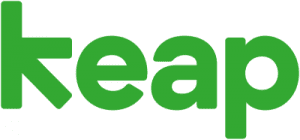
Keap, formerly known as Infusionsoft, is a CRM, sales, and marketing automation software for growing companies. It is an easy-to-use platform that enables midsize businesses to increase sales. Users save time through automated and repeatable processes for sales activities and marketing campaigns. The software captures leads automatically and enriches contact profiles through custom lead forms, landing pages, and social media.
Teams can easily access contact details and take actions directly from the contact record, whether on the desktop or the mobile app. This CRM solution also has segmentation, automation, and native integrations to many business apps like Shopify, QuickBooks, and HelloSign.
Copper

Copper CRM is a solution known for its Google Workspace and Chrome integration. Whenever using Gmail, Google Calendar, or Google Drive, users can download the Chrome extension or the Google Workspace Add-on and continue to manage contacts, deals, emails, and files. Teams can sync their meetings and auto-populate tasks.
A report builder lets users connect Sheets and export datasets into the CRM to create dashboards, reports, charts, and graphs. Other features include automated follow-ups, visual sales pipeline, alerts and notifications, workflow automation, activity feed, custom opportunity cards, and integrated project management.
Insightly

Insightly is a unified CRM platform for marketing automation and project management. It includes tools to help marketing teams create customer journeys. Sales teams get a centralized view of customers and deals. Project teams track milestones and manage processes to deliver projects on time. The software tracks relevant lead information and automatically routes leads to the right reps.
Insightly allows users to create and automate multi-step business processes like sending email alerts, creating or updating records, generating tasks, and executing commands to sync with external systems. Teams can create and send emails from within the CRM, send out bulk emails, track email delivery in real time, and monitor open and click statistics.
Drip

Drip is a CRM for e-commerce businesses. It provides the tools to help midsize online retailers build personal and profitable relationships with customers. The software helps users attract more customers online, send emails to increase engagement, and provide information that nurtures relationships and promotes loyalty.
It has an easy-to-use forms builder, so teams can connect to visitors and get them to sign up. Users can add fields, customize buttons, and configure rules to control when forms appear. They can also use pop-ups, targeted forms, and SMS opt-ins. Teams can also send personalized emails and texts, and automate them with a visual workflow builder. Other features include A/B testing, behavior-based automations, scheduled sending, social media integration, segmentation, and reports.
What are the Types of CRM Software?
CRM software is a system designed to help business users acquire, understand, and manage their customers. The ways CRM helps companies varies according to the tools it includes.
Operational CRM
Operational CRM systems assist companies in improving their operations, particularly in the areas of sales, marketing, and customer service. With automation, teams can streamline daily duties, automate time-consuming tasks, synchronize data across views and devices, and ensure movement in workflows. It can also store and organize information to provide customers additional convenience.
Analytical CRM
Analytical CRM systems aid companies in learning about their customers, their profiles, preferences, and pain points, so they can provide the right products and services. Through data analysis or analytics, teams are able to predict, calculate, and produce information through reports, gaining a better understanding of people and their behavior. The information allows companies plan better campaigns, build more accurate personas, and provide options for up-selling and cross-selling.
Collaborative CRM
Collaborative CRM systems serve companies by making it easy for different teams to access, update, and share relevant information to one another. For instance, users can identify the different preferences of customer demographics, and use that information to advantage. If a service agent receives information from a customer through phone, email, or social media, then marketing staff or sales reps can also contact the customer via these channels. Data captured and collected becomes comprehensive, giving companies a holistic view of the customer.
Features of CRM Software for Midsize Companies
The relationship between a company and its customers determines the future success of the business. The right features from the best CRM for midsize companies will improve the bottom line, help identify and categorize leads better, and increase the chance of referrals from existing customers.
Contact Management
Contact management enables users to store, organize, update, and share customer information, so they can cater to them more effectively. Mid-market CRM software offers unlimited or scalable databases of contacts and organizations. It also allows segmentation, a timeline or history of activities and engagements, and ways to share or export data into other formats.
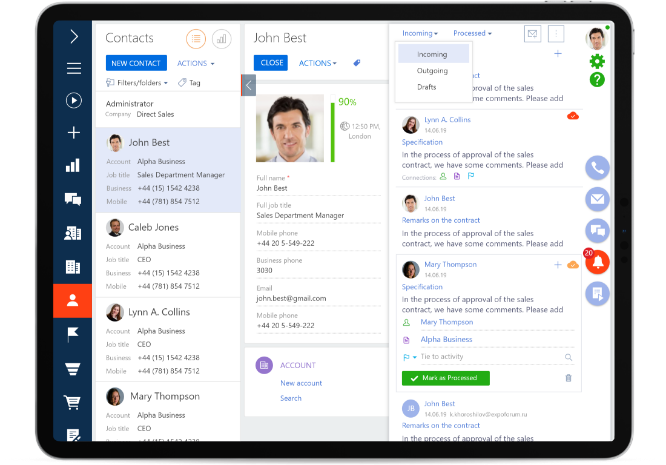
Lead Management
Lead management allows companies to determine the best customers to follow up with using different classifications, characteristics, and calculations. This CRM feature helps organize the prospects and customers. Using automated logic or custom criteria, users can determine the persons they need to focus on, and help move along the pipeline. Today’s solutions include visual pipelines, deal tracking, and custom fields.
Communications
Teams need to reach out and connect with customers. This is possible with integrated communication channels built right into the CRM. Omnichannel features with a centralized inbox allow users to easily manage conversations and link them to contacts and deals. They can also make sales calls or chat with website visitors online. Moreover, the CRM makes it easy for teams to track all communication from a single platform, giving better visibility of the customer and providing more control over schedules.
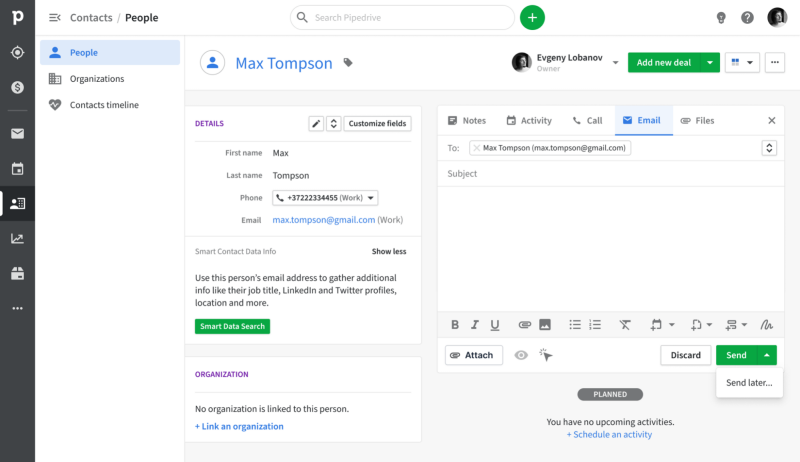
Automation
Automation can span different teams and activities, covering marketing, sales, and customer service. CRM tools automate repetitive tasks to help users have more time with customers. It can automatically give alerts and notifications to remind teams of next steps. Automation can also include giving personalized and targeted recommendations, as well as help gather, update, and enrich customer data from publicly available online information.
Reports and Dashboards
An effective CRM solution for SMB enables the company to get quality information and insights, much as a larger company would get from its enterprise system. CRM software includes ready-to-use and customizable reports with various options to group, filter, and visualize results. It can show a range of statistics and offer real-time updates that are accessible across different devices.
Mobile Access
CRM solutions with mobile apps allow users to access relevant customer and company information quickly and conveniently. Teams can receive alerts and reminders to help them plan and take the next step. They can also make changes wherever they are, as situations develop, to keep everyone informed.

Integrations
Integrations enable CRMs to extend their functionality and benefits to the whole organization. From the first input of data to the last decision, integrations help a system to cover more areas of the business, and allow more people to collaborate without interrupting the flow of data. It can also unify workflows and allow a greater application of AI.
Campaign Management
Campaign management features in CRM help teams with scheduling marketing activities such as sending emails, posting on social media, and tracking metrics. Modern solutions also enable teams to plan, launch, and track multiple campaigns simultaneously and compare results.
CRM for Specific Industries
Omnichannel tools, marketing automation, and other features in CRM software are helping the top mid-market companies gain momentum in their respective industries.
Media and Advertising
Media, advertising firms, and digital agencies need to enhance their collaboration with customers to engage targeted audiences better. These features can help continue their growth.
- Contact Management: A centralized place to view contact information, files, and conversations can help companies in these industries ensure that data is up-to-date, and the connection is fresh — so teams can concentrate on creative work instead of admin.
- Campaign Management: An interactive interface, built-in calendars, and integrated email tools enable users to launch multi-stage and multi-channel campaigns effectively.
- Automation: Midsize companies can reduce the time spent on day-to-day operations by automating processes like monitoring advertising campaigns, tracking the history of customer orders, and bookings.
Professional Services
Professional services companies and consultancies need to build strong customer relationships and identify new opportunities, so they can stay ahead of competition.
- Integrated Communications: Collaboration and project management tools can help these companies plan, manage, and execute client projects, with continuous feedback to ensure customer satisfaction.
- Contact Management: A centralized platform for customers, employees, and partners can simplify setting schedules, monitoring activities, and tracking workloads.
- Reports and Dashboards: Companies offering professional services can use reports and interactive dashboards to better identify and segment their client database, so they can spot new business opportunities.
Pharmaceuticals and Biotechnology
CRM solutions for midsize companies in pharma, life sciences, and health care industries can boost customer engagement to create innovative products and services for patient care.
- Contact Management: This feature unifies contact and account management with a real-time view of interactions, communications, and relationships.
- Campaign Management: Users can launch coordinated marketing campaigns easily, scheduling events with the right audiences through segmentation and multi-channel engagement.
- Mobile Access: Teams can engage customers in various locations, clinics, hospitals, and research facilities equipped with the latest information about new products and the latest metrics.
